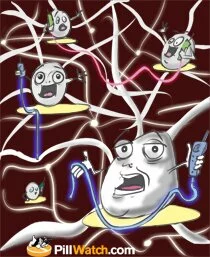
No illness is easy to cure. Even such conditions as cold or flu, we actually got used to, since they affect our bodies quite often, can be very difficult to get rid of and avoid serious complications.
Psychological conditions are even more difficult to treat than the physical ones. The situation with the first group of illnesses is often worse due to the fact that not all of them are nowadays properly understood by the scientists and doctors, which makes it next to impossible to develop the appropriate treatment.
One of the diseases, which target our minds and souls, is depression. So many people have suffered its devastating consequences! No wonder, these days there exist a lot of ways to fight this disorder. Among the possible treatment methods and drugs selective serotonin reuptake inhibitors (SSRIs) are the most often used. Moreover, they are said to be safer than the other treatments.
To understand how they help reduce depression symptoms it is first necessary to find out how this disorder develops in our body and what it actually is.
To start with, it is worthy to say that our brain consists of nerve cells called neurons. For the brain to function properly, neurons communicate with each other sending messages with the help of chemicals called neurotransmitters (they can be of different types). The latter are released by one of the neurons into the space between them (synapse), so that later they can reach the neighboring neuron or neurons. However, while some amount of these messengers enters the neighboring neurons, some of it returns back to the one, which sent the message.

The word “depression” is used to denote the breakdown of the neurons communication. Scholars suggest that brain cells cannot communicate properly if there is no proper amount of neurotransmitters, or if they do not work well. Anti-depression drugs affect these chemical messengers improving thus neurons communication.
Selective serotonin reuptake inhibitors work by increasing the level of neurotransmitter called “serotonin”. They act so that the neuron, which initially sends a message, cannot pull any of the serotonin released back inside. Consequently, the rest of the brain cells have larger amounts of this particular neurotransmitter to take. As a result, cells communication is improved.
Several weeks are usually needed for the SSRIs to work and improve depression, since brain has to adapt to the changes caused by these drugs. This is also the reason of the side effects occurrence during the first weeks of SSRIs usage.
Some of the most popular, effective, and safest SSRIs are: Celexa (citalopram hydrobromide), Paxil (paroxetin hydrochloride), Prozac (fluoxetine hydrochloride), and Zoloft
(sertraline hydrochloride). These drugs have proved to improve mood and mental agility, physical activity, and sleep patterns.
It was found out that in some cases it took about seven days for Celexa and Zoloft to work, about ten days for Paxil to start working, and as many as twenty-eight days for Prozac to improve depression symptoms.

It is also worthy to note that the latter drug has a stimulating effect on the body; thus, it should not be taken in the evening in order to avoid insomnia. Paxil, on the contrary, is a sedating medication. At the same time, Celexa and Zoloft are characterized by neither stimulating nor sedating effects on the organism. In addition, Celexa has fewer interactions with other drugs.
Though SSRIs are said to be the safest of the existing anti-depression drugs, they still have contraindications and precautions. Therefore, the particular medication should be prescribed by a professional health-care provider taking into account the overall health of a patient and the history and severity of his depression.
| Tip for you : Sign-in with Your OpenID and post faster, easier and with easy access to all your past posts. | |
|
Your Nick: |
















